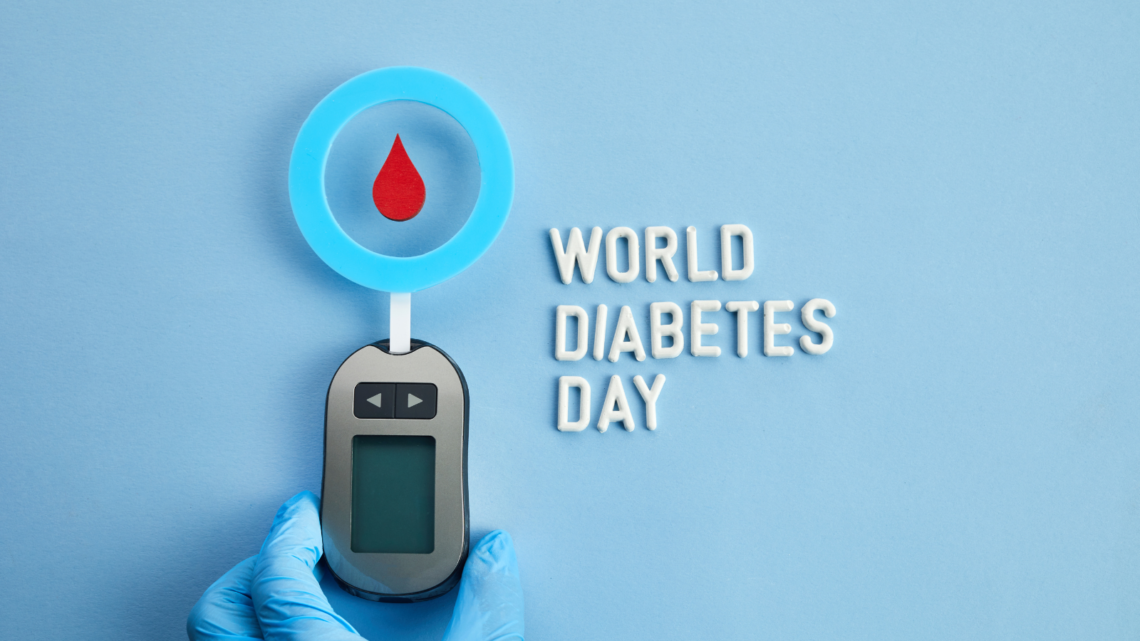
World Diabetes Day
World Diabetes Day, observed on November 14th, stands as a testament to the collective will to combat a pervasive and escalating global health crisis. As we recognize this day, it is imperative to absorb and address the sobering statistic that 1 in 10 adults worldwide are now living with diabetes. This figure isn’t just a number—it’s a mosaic of individual stories, families, and communities grappling with the implications of a chronic condition that knows no borders.
Type 2 diabetes, representing over 90% of these cases, is often termed a lifestyle disease, precipitated by factors such as obesity, insufficient physical activity, and poor diet. Unlike type 1 diabetes, which is primarily due to genetic factors and manifests early in life, type 2 diabetes can be prevented or delayed with lifestyle modifications. Yet, the prevalence of type 2 diabetes is a stark reminder of the challenges in altering lifestyle patterns on a global scale and the need for robust, culturally sensitive public health strategies.
The shadow pandemic within diabetes is the staggering number of undiagnosed cases—close to half of all individuals with diabetes are unaware of their condition. This lack of diagnosis is a silent driver of global morbidity, as undiagnosed diabetes is a precursor to numerous health complications, including cardiovascular diseases, neuropathy, kidney damage, and retinal issues that can lead to blindness.
World Diabetes Day thus serves a dual purpose. It is both a platform for raising awareness and an urgent call to improve the identification and management of diabetes. Education campaigns, community-based screenings, and strengthening health systems to recognize and respond to diabetes effectively are vital components of this day. Additionally, it is a day to push for better access to affordable and equitable treatment options, particularly in low-to-middle-income countries where such resources are often scarce.
In Canada and across the globe, the day is marked by activities that shine a light on the realities of living with diabetes. From blue light monuments to educational workshops, the objective is to catalyze a change in perception and action. It is about illuminating the path to better health policies, more comprehensive care models, and innovations in treatment that can improve the quality of life for those living with diabetes. Moreover, World Diabetes Day reminds us of the importance of personal empowerment. Through self-management education, individuals with diabetes can take charge of their condition, monitoring their blood glucose levels, adhering to their medication regimens, and making informed dietary choices. Support groups and peer networks also play a crucial role in providing the necessary emotional and practical support to manage diabetes daily.
As we commemorate World Diabetes Day, we are called upon not merely to reflect but to act. It is a moment to reaffirm our commitment to preventing and managing diabetes and to renew our efforts in research for better treatment and, ultimately, a cure. This day is not just about awareness; it is about fostering a world where diabetes no longer poses a threat to our global community.

